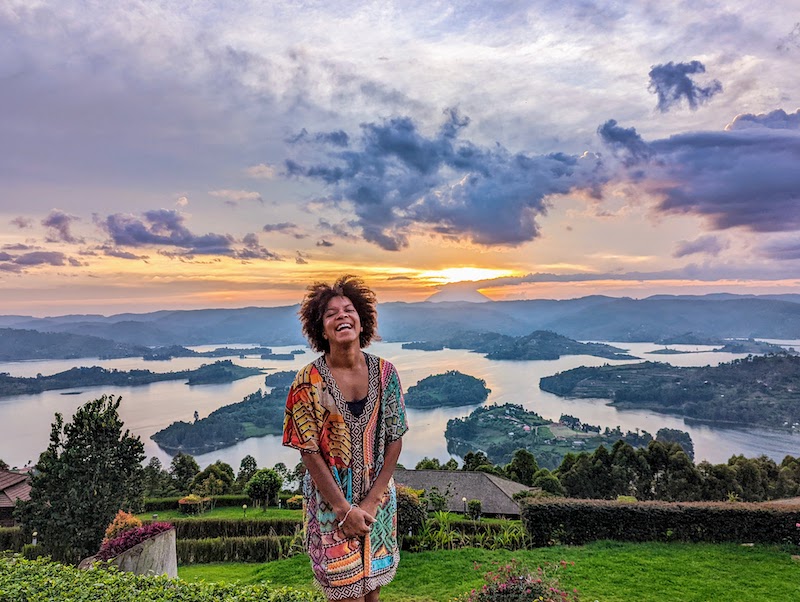Responsible Travel







Whys is Responsible Travel Important?
Our Vision
To improve life through adventure travel to enable people, communities, nature and visitors to thrive together for the lasting benefit of the natural world and for the health and enjoyment of generations to come.
Our Philosophy
We’ve always believed that tourism can be a powerful force for good. The right kind of tourism can create social, economic and environmental benefits. For us, responsible travel is not just a nice add-on, it’s at the core of what we do. Responsible travel shouldn’t be limiting, it should take you on an adventure and inspire you whilst still being comfortable, flexible and seamlessly-run. We seek out unforgettable experiences that bring tangible benefits to local people but crucially also enhance your holiday.
Here are some of the ways you can support people on your trips.
New Hope Nursery & Primary School
Supporting education for orphans is at the center of what we believe in and support. Not far from one of our favorite destinations in Buhoma (Bwindi Impenetrable National Park) and ISHASHA (Queen Elizabath Nation Park) is a primary School. This non-profit primary school is made up of a team of local teachers and dedicated volunteers who strive daily to offer a world-class education to children in this rural area of Uganda. Most of the parents of attending students are peasant farmers and earn less than the equivalent of $3 a day. The school opened in 2022 and currently provides education to over 250 rural students. With the school visionary goal in mind, it now aims to “become sustainable through long-term Education Partnerships” our guests can visit the school and contribute to the project in various ways. Ask us how you can get involved.
Park with A Purpose
If you save just a few kilos of space in your suitcase and take supplies for one of the projects we support in need, you’ll make a priceless impact on the lives of our local children and families. Items that can be donated include, soccer balls, netballs, volleyballs & nets, board games, pens, colors, painting books, shoes for the kids, clothes, schooling bags, children’s novels, and dictionaries.
Women’s Groups
Through our child organization, Children Missions Charity, we support a group of 25 Women and their families living on the outskirts of Bwindi Impenetrable National Park to learn to live in a fast-changing world through education, financial support, and market for their creative work and CRAFTS
Batwa Development Program
The Batwa pygmy tribes have been evicted from their ancestral forest. These original inhabitants of central Africa lived in these forests as hunter gatherers until 1991, when due to deforestation they were abruptly and forcefully removed from the forest to create National Parks. Though promised land and compensation from the government, since then they have displaced. In southwest Uganda, the Batwa are presently found in Kabale, Kanungu and Kisoro. Now a significant minority, they are suffering unimaginable poverty, disease, illiteracy, stigmatization, and often are forced to beg for a living. There is an estimated 25,000 Batwa living in western Uganda. They are one of the poorest people in the southern hemisphere. They face systematic discrimination.
Tips on How to be a Responsible Traveler
- Stay in local accommodation and visit local restaurants, generating both economic and employment opportunities.
- Where possible, our trips visit and support community-owned cooperatives, local social enterprises and working with registered NGO’s
- support gender equality and the protection of human rights across all of our trips and have high standards of welfare for guides and porters.
- Support cultures. avoid contrived cultural experiences that are not respectful of people. Instead, we actively seek to support the preservation of cultural and traditional heritage, using the knowledge of our local guides.
- Support local businesses, Local businesses benefit greatly from your business. Choose them over big-name giants. This starts with choosing a local hotel run by locals. And bonus: Eating and drinking local is a great way to truly immerse yourself in a new culture.
- Choose Ethical Wildlife Activities, Wildlife tourism is a big business centered around profits rather than the well-being of animals. When booking an activity involving wildlife, consider if you will be contributing to the distress of the animals or the wealth of the tour operator.
- Dispose Your Waste Properly, many countries do not properly recycle and burn trash, including plastics, which can be very toxic for locals inhaling the fumes. One easy way to reduce waste is to bring a reusable water bottle that you can fill up with drinkable water from larger jugs in hotels or restaurants. You may also consider not using plastic bags when you shop, or bringing them back home with you so you can properly recycle them.
- Community Building; Travel enriches lives. Whether a fleeting moment at a local market stall or being welcomed into someone’s home, travel opens doors for visitors and hosts alike. According to the World Travel and Tourism Council, the travel industry supports 1 in 10 jobs across the world, and in many of our destinations, tourism is an economic lifeline.
Improving life for people, The People pillar of our People, Places & Planet plan seeks to improve lives of the people in the communities we visit. This means supporting local businesses, creating employment opportunities, promoting regenerative practices and ensuring that your money has a direct positive impact for locals.

